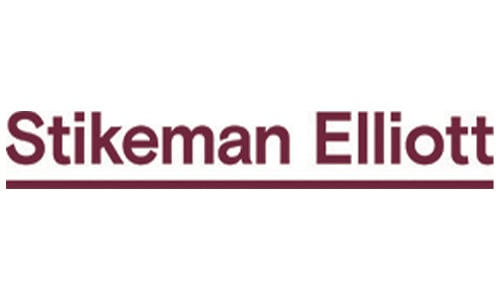In late 2022, the Québec Government published a new webpage with further details on the implementation of Bill 78, an act mainly to improve the transparency of enterprises, including an in-force date – March 31, 2023 – for the filing obligations, and an additional date – March 31, 2024 – on which the names of individuals will become searchable on the Québec enterprise register (the "REQ"). Importantly, these requirements will apply to all entities operating an enterprise in Québec, without regard to their jurisdiction of incorporation.
Background
Bill 78, which passed with the unanimous support of the National Assembly on June 3, 2021, introduces significant corporate transparency disclosure requirements to Québec's Act respecting the legal publicity of enterprises ("Québec Legal Publicity Act").
While these changes follow the implementation of corporate transparency initiatives in the Canada Business Corporations Act ("CBCA") and in a number of other provinces, Québec is the first Canadian jurisdiction to put in place a system that will make corporate and other ultimate beneficiary information publicly accessible. Furthermore, these requirements will apply to all corporations, partnerships and business trusts required to register with the REQ, ("Registrants"), which includes all such entities operating an enterprise in Québec, not just those formed under Québec laws.
In-force Dates
The Government had previously indicated an expected October 2022 in-force date, but the new webpage now specifies that the transparency obligations will come into force on March 31, 2023 and that searches by names of individuals on the REQ will be possible starting on March 31, 2024.
Following March 31, 2023, entities newly registering with the REQ will need to comply with the transparency disclosure requirements and it is expected that entities registered with the REQ will be required to file their corporate transparency information by no later than when their annual updating declarations are filed after March 31, 2023. As such, based on the current regulations, we expect that the applicable periods for filing such updating declarations would be as follows:
- In the case of a legal person required to file a fiscal return under section 1000 of Québec's Taxation Act, the period that starts on the day after the end date of its taxation year and ends on the day that is 6 months after that date (for example, a July 1, 2023 deadline for corporations with a December 31, 2022 taxation year-end and that file tax returns in Québec – if they have not already filed a 2023 updating declaration prior to March 31, 2023);
- In the case of a trust required to file a fiscal return under section 1000 of Québec's Taxation Act, the period that starts on the day after the end date of its taxation year and ends on the day that is three months after that date (for example, a March 31, 2024 deadline for trusts with a December 31, 2022 taxation year-end);
- In the case of a natural person or a partnership, the period that starts on 1 January and ends on 15 June (i.e., a June 15, 2023 deadline – if they have not already filed a 2023 updating declaration prior to March 31, 2023); and
- In all other cases, the period that starts on 15 May and ends on 15 November (i.e., a November 15, 2023 deadline for corporations and trusts that do not file tax returns in Québec).
Ultimate Beneficiaries
A key concept in Québec's transparency regime is that of "ultimate beneficiaries.” In respect of a Registrant, ultimate beneficiaries are individuals who are holders, "even indirectly,” or beneficiaries of, shares or units of the Registrant:
- conferring on the person the power to exercise 25% or more of the voting rights attached to the shares or units issued by the Registrant, or
- the value of which corresponds to 25% or more of the fair market value of all the shares or units issued by the Registrant.
Where individuals agree to jointly exercise voting rights attached to such shares or units, and the agreement confers on them, together, the power to exercise those voting rights (a "Voting Agreement"), their holdings are aggregated for these purposes and each such individual is an ultimate beneficiary if these aggregated voting rights exceed the 25% threshold.
Ultimate beneficiaries also include (i) any person who has any direct or indirect influence that, if exercised, would result in control in fact of the Registrant within the meaning of sections 21.25 and 21.25.1 of Québec's Taxation Act ("control in fact" is often not a simple determination – see further discussion below); (ii) in respect of partnerships, their general partners or the ultimate beneficiaries of the general partners and (iii) in respect to trusts, their trustees and certain beneficiaries. There are additional rules that apply to determining the ultimate beneficiaries of trusts and intermediary limited partnerships.
Entities that are themselves exempt from disclosing their ultimate beneficiaries (further discussed below) are treated as natural persons for the purposes of determining the ultimate beneficiaries of non-exempt entities (i.e., exempt entities can be ultimate beneficiaries of non-exempt entities, for example, if a reporting issuer controls a private company, the reporting issuer will need to be disclosed as an ultimate beneficiary of that private company).
Obligations on Registrants
When the transparency regime comes into effect, Registrants that are subject to the ultimate beneficiary disclosure obligations will be required to "take the necessary measures to locate them and to ascertain their identities".
An earlier draft of Bill 78 had proposed that this obligation be to take "reasonable measures.” The Québec Government has made clear with the wording of the final version of the legislation - “take the necessary measures,” that it is imposing a more onerous standard. The Government's corporate transparency website further interprets this obligation as follows (our translation from the original French version):
"Enterprises must take the necessary measures to locate and identify their ultimate beneficiaries. This means all measures which are necessary to locate and identify their ultimate beneficiaries. Necessary measures are greater than reasonable measures.
The enterprise must proceed with a legal, documentary and factual analysis of its situation. For example, in the case of a corporation, it must analyze its share capital as well as any agreements that are likely to influence the manner in which voting rights are exercised.
Furthermore, ultimate beneficiaries are sometimes different from the shareholders of the enterprise. In complex cases, we recommend that you consult with legal counsel."
Certain Registrants, however, are exempt from the ultimate beneficiary disclosure requirements, including non-profit legal persons established for a private interest (i.e., private non-profit corporations), associations, legal persons established in the public interest (i.e., crown corporations), reporting issuers within the meaning of the Securities Act (Québec) and certain financial institutions. Notably, unlike several of the other transparency regimes in Canada, there is currently no exemption for foreign listed companies that are not reporting issuers in Canada.
Non-exempt Registrants will be required to file with the REQ, in respect of each of their ultimate beneficiaries, (i) their name, (ii) residential address, (iii) date of birth, (iv) any other names they use in Québec and by which they are identified and (v) the type of control over the Registrant that they exercise or the percentage of shares or units they hold or are the beneficiary of, as well as the date on which they became an ultimate beneficiary. Recent proposed amendents would also require disclosure of "the condition under which the ultimate beneficiary became one.” As with other information filed with the REQ, Registrants must file an updating declaration within 30 days of any change in this information or immediately upon discovering any inaccuracy in it.
Bill 78's amendments to the Québec Legal Publicity Act leave intact its existing penalties for non-compliance, which can include fines of up to $25,000 (which can be doubled in the case of a subsequent offence) and the cancellation of a registration.
Implementing Regulation
On December 21, 2022, the Québec government published, for a 45-day comment period, a draft regulation intended to implement certain provisions of Bill 78. The draft regulation includes the following key proposals:
- a natural person who controls, directly or indirectly, shares or units of a registrant that meet either of the 25% thresholds discussed above, would be considered an ultimate beneficiary;
- a natural person who controls directly or indirectly, a number of the shares or units of an entity that is a party to a Voting Agreement would also be considered an ultimate beneficiary; and
- in respect of the requirement to disclose the percentage of shares or units which an ultimate beneficiary holds or is the beneficiary of, this would be expressed in terms of ranges of 25% to 50%, over 50% to 75% or over 75%.
Uncertainties and Challenges
While it may be simple to determine an entity's ultimate beneficiaries in many cases, more complex ownership structures, or the presence of indicia of control in fact could make this a much more cumbersome exercise for Registrants. To learn more about some of these challenges, continue reading at Stikeman.com
***

Trevor Rowles is counsel, M&A - Knowledge Management in the Montréal office. As a member of the Knowledge Management and Corporate Groups, Trevor works closely with members of both groups to provide hands-on support. On the Knowledge Management side, he develops and maintains state-of-the-art precedents, and participates in integrated initiatives relating to market developments, CLE, business development and client service. In his corporate practice, Trevor advises clients on a wide range of complex. M&A and private equity matters, including contract, transactional and drafting issue





